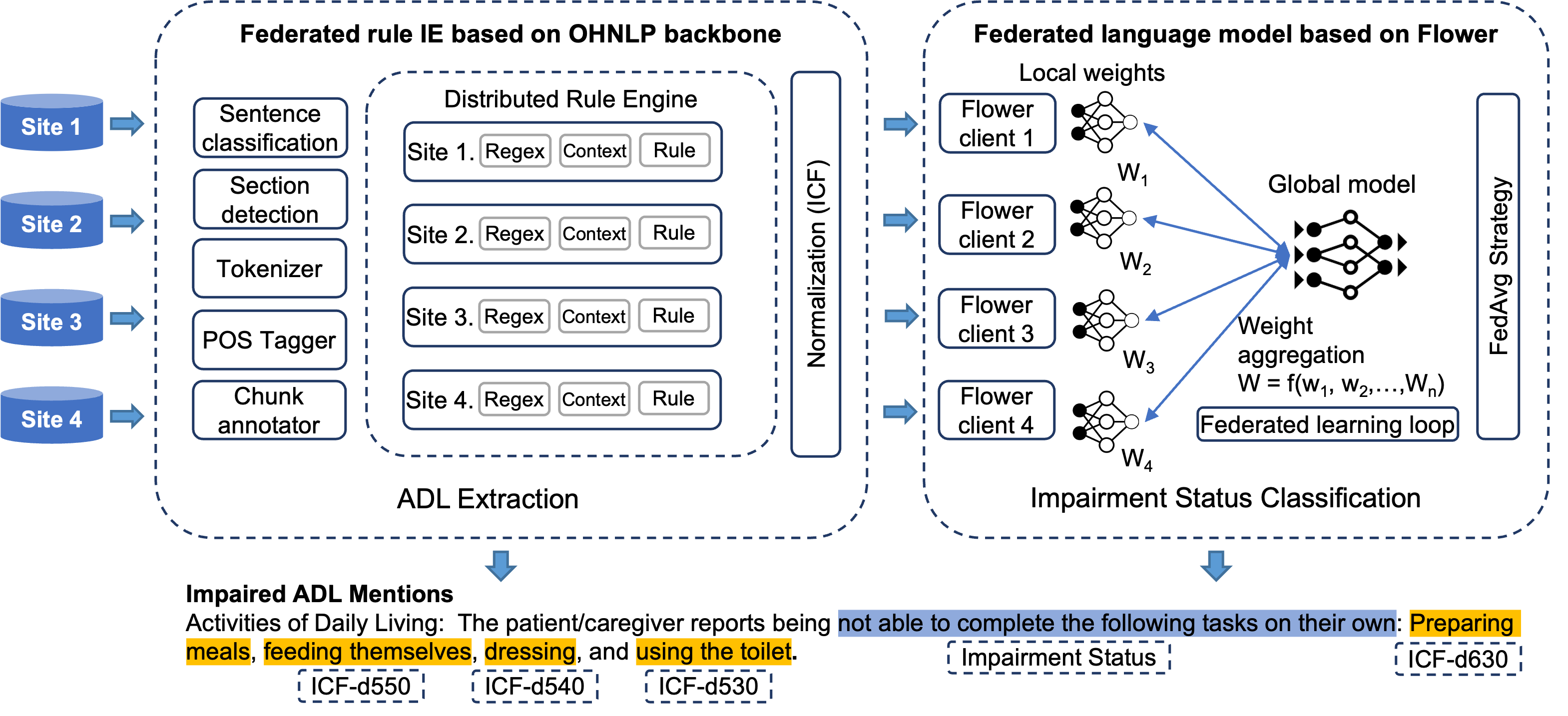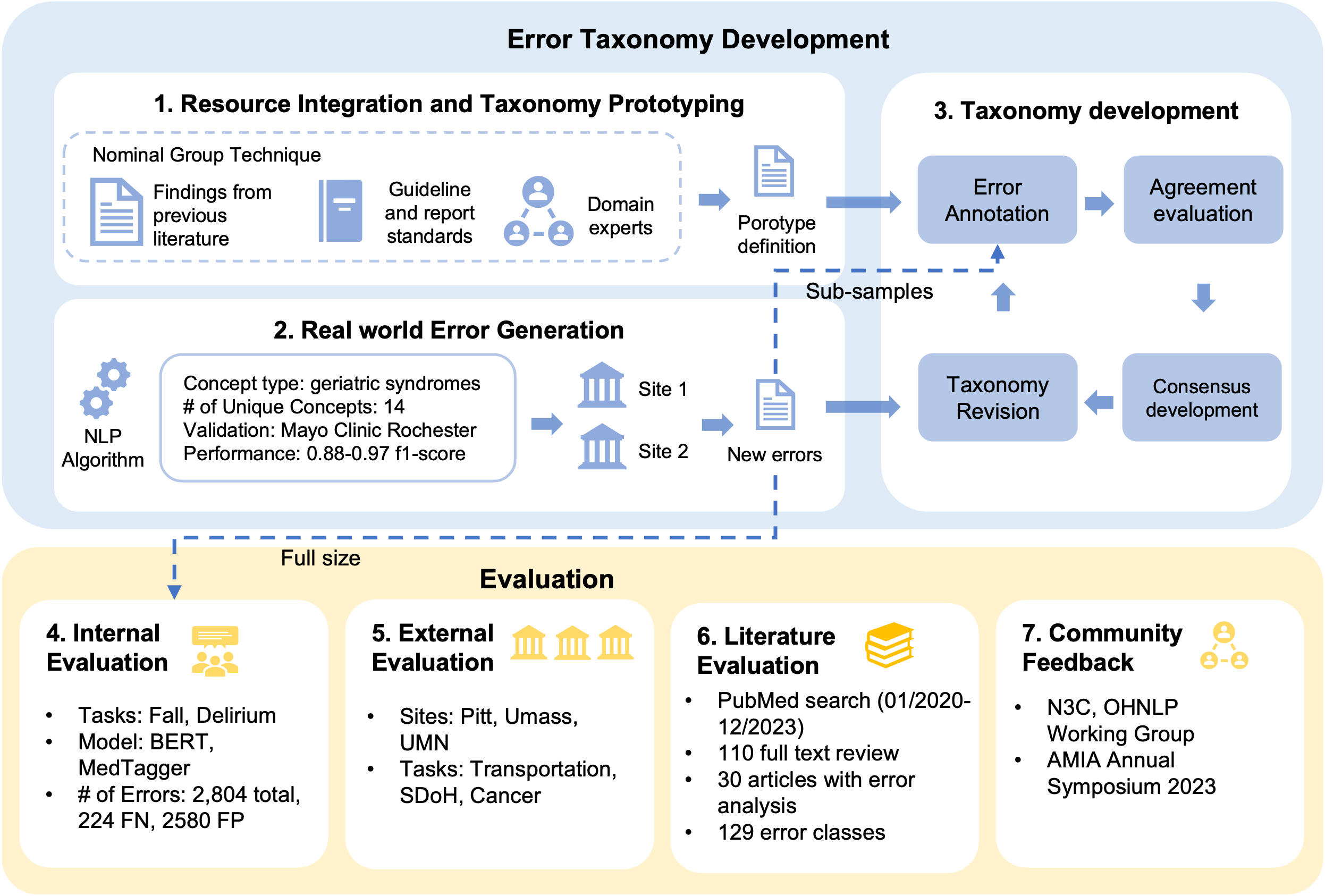
Sunyang Fu, PhD, MHI
Assistant Professor & Associate Director of Team Science, Center for Translational AI Excellence and Applications in Medicine (TEAM-AI), McWilliams School of Biomedical Informatics, UTHealth Houston
Email: Sunyang.Fu@uth.tmc.edu
Recent News
Jan 01 2025: I began serving as Vice Chair of the NLP Working Group at the American Medical Informatics Association (AMIA), supporting initiatives in natural language processing research and community engagement.
Sep 13 2024: We received two pilot awards from the Artificial Intelligence and Technology Collaboratories (AITC) for Aging Research program and UTHealth Insitution of Aging to study acute heart failure exacerbation and adverse drug events among Older Adults.
Aug 9 2024: Our study A Generalist Vision-Language Foundation Model for Diverse Biomedical Tasks has been accepted by Nature Medicine.
June 20 2024: Our study error taxonomy was featured by JAMIA and selected as AHRQ collection.
Mar 18 2024: Honored to receive NIDUS II LOI Award to improve the differential detection between delirium and dementia
Mar 17 2024: Honored to receive AMIA IS 24 SPC Award.
Jul 1 2023: Very excited to join UTHealth McWilliams School of Biomedical Informatics as a faculty member.
Mar 18 2023: Our CTS study is featured by the American Society for Clinical Pharmacology and Therapeutics and Clinical and Translational Science, as well as Mayo Clinic's Research Magazine.
Bio
I am an Assistant Professor and Associate Director of Team Science at the Center for Translational AI Excellence and Applications in Medicine (TEAM-AI), McWilliams School of Biomedical Informatics, University of Texas Health Science Center at Houston. I am also affiliated with UTHealth Institute on Aging, Network for Investigation of Delirium: Unifying Scientists, and Mayo Clinic, Division of Epidemiology. The overarching goal of my research is to accelerate, improve and govern the secondary use of Electronic Health Records (EHRs) for clinical and translational research toward high throughput, reproducible, fair, and trustworthy discoveries. I have significant collaborative research experience in aging, cancer, and musculoskeletal diseases and procedures. Previously, I was a Sr. Data Science Analyst at the Department of AI and Informatics, Mayo Clinic. I obtained my Ph.D. at the University of Minnesota, M.H.I. at the University of Michigan, and B.B.A. at the University of Iowa.
Research Highlights
Improving Detection of Aging-related Outcomes Using Real-World Data

Related Publications:
Fu S, Jia H, Vassilaki M, Keloth VK, Dang Y, Zhou Y, Garg M, Petersen RC, St Sauver J, Moon S, Wang L. FedFSA: Hybrid and federated framework for functional status ascertainment across institutions. Journal of Biomedical Informatics. 2024 Apr 1;152:104623. https://doi.org/10.1016/j.jbi.2024.104623
Fu S, Lopes GS, Pagali SR, Thorsteinsdottir B, LeBrasseur NK, Wen A, Liu H, Rocca WA, Olson JE, St. Sauver J, Sohn S. Ascertainment of delirium status using natural language processing from electronic health records. The Journals of Gerontology: Series A. 2022 Mar 1;77(3):524-30. https://doi.org/10.1093/gerona/glaa275
Fu S, Thorsteinsdottir B, Zhang X, Lopes GS, Pagali SR, LeBrasseur NK, Wen A, Liu H, Rocca WA, Olson JE, Sauver JS. A hybrid model to identify fall occurrence from electronic health records. International journal of medical informatics. 2022 Jun 1;162:104736. https://doi.org/10.1016/j.ijmedinf.2022.104736
Accelerate the Translation of Natural Language Processing for Clinical Research

Related Publications:
Fu S, Wang L, He H, Wen A, Zong N, Kumari A, Liu F, Zhou S, Zhang R, Li C, Wang Y. A taxonomy for advancing systematic error analysis in multi-site electronic health record-based clinical concept extraction. Journal of the American Medical Informatics Association. 2024 May 14:ocae101. https://doi.org/10.1093/jamia/ocae101
Fu S, Wang L, Moon S, Zong N, He H, Pejaver V, Relevo R, Walden A, Haendel M, Chute CG, Liu H. Recommended practices and ethical considerations for natural language processing‐assisted observational research: A scoping review. Clinical and translational science. 2023 Mar;16(3):398-411. https://doi.org/10.1111/cts.13463
Fu S, Leung LY, Raulli AO, Kallmes DF, Kinsman KA, Nelson KB, Clark MS, Luetmer PH, Kingsbury PR, Kent DM, Liu H. Assessment of the impact of EHR heterogeneity for clinical research through a case study of silent brain infarction. BMC medical informatics and decision making. 2020 Dec;20:1-2. https://doi.org/10.1186/s12911-020-1072-9
Enhancing Multi-Institutional EHR Data Management and Use for Reproducible and Valid Discoveries

Related Publications:
Fu S, Wen A, Schaeferle GM, Wilson PM, Demuth G, Ruan X, Liu S, Storlie C, Liu H. Assessment of data quality variability across two EHR systems through a case study of post-surgical complications. AMIA Summits on Translational Science Proceedings. 2022;2022:196. PMC9285181
Fu S, Vassilaki M, Ibrahim OA, Petersen RC, Pagali S, St Sauver J, Moon S, Wang L, Fan JW, Liu H, Sohn S. Quality assessment of functional status documentation in EHRs across different healthcare institutions. Frontiers in Digital Health. 2022 Sep 27;4:958539. https://doi.org/10.3389/fdgth.2022.958539
Fu S, Wen A, Pagali S, Zong N, St Sauver J, Sohn S, Fan J, Liu H. The implication of latent information quality to the reproducibility of secondary use of electronic health records. InMEDINFO 2021: One World, One Health–Global Partnership for Digital Innovation 2022 (pp. 173-177). IOS Press. 10.3233/SHTI220055
Students
- Zhiyi Yue, MS – PhD mentor/thesis committee, UTHealth Houston
- Taylor Harrison, MBA – PhD mentor/thesis committee, University of Minnesota (co-advised by Dr. Hongfang Liu)
- Sonish Sivarajkumar, MS – Thesis committee, University of Pittsburgh (advisor: Dr. Yanshan Wang)
- Alen Wang – Research Intern, 2024 -> Carnegie Mellon University (Robotics Academic Program)
- Ethan Zhang – Research Intern, 2023 -> Northwestern University (Integrated Science Program)